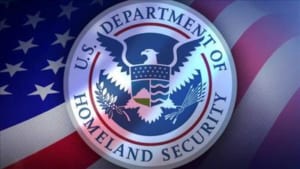


Sometime in 2024, the United States Department of State (“DOS”) quietly updated its requirements for birth certificates in the DOS Reciprocity Schedule for Taiwan. Birth Certificates seem no longer required or accepted for Taiwan nationals. The only acceptable document for proof of birth is now an Individual Household Registration Transcript. The Individual Household Registration Transcript is part of Taiwan’s greater Household Registration System to which all Taiwan nationals must have registered with the Taiwan government. The Transcript provides a record of a household’s members and their relationship to each other, including details like birth, marriage, and death. Moreover, DOS National Visa Center is not accepting bilingual Chinese and English versions which are now widely available. The National Visa Center is requiring an original Chinese version and an original English version issued by the Household Registration Office, although we have been successful submitting a translation of the original Chinese version.

Enterline and Partners attorneys David Enterline and Ryan Barshop recently spoke at the 2025 American Immigration Lawyers Association (“AILA”), Asia Pacific Chapter (“APAC”) Annual Conference in Seoul, South Korea. David Enterline was the discussion leader of the EB-5 Panel titled “EB-5 State of Play Under the New Administration”. Along with important challenges like I-485 processing delays, USCIS receipt number issues, visa rollover concerns, and ongoing litigation—including IIUSA’s challenge to USCIS’s sustainment policy and the Battineni v. Mayorkas ruling regarding EB-5 fund sourcing requirements—the topics covered included the encouraging rise in I-526/I-526E and I-829 petition approvals. Updates on tax planning, concurrent filing tactics and other topics were also discussed. On the panel “Live from the Trenches with Consular Post Experts in our APAC Region”, Ryan Barshop was one of the featured speakers. The event’s topics included advice on how to handle visa procedures at U.S. Embassies and Consulates throughout Asia. During

Effective immediately, the United States Department of Homeland Security (“DHS”) will begin considering a foreign national’s antisemetic activity on social media and the physical harassment of Jewish individuals as grounds for denying immigration benefits. The new policy, which is consistent with President Donald Trump’s Executive Orders on Combatting Antisemetism, Additional Measures to Combat Antisemitism and Protecting the United States from Foreign Terrorists and Other National Security and Public Safety Threats; will apply to foreign nationals applying for an adjustment of status, foreign students on F-1 and M-1 student visas and those affiliated with educational institutions linked to antisemetic activity. The United States Department of State provides a working definition of antisemitism as “certain perception of Jews, which may be expressed as hatred towards Jews. Rhetorical and physical manifestation of antisemitism are directed toward Jewish or non-Jewish individuals and/or their property, toward Jewish community institutions or religious facilities.” Under the new
Copyright 2012 – 2024 Enterline and Partners Consulting | All Rights Reserved



